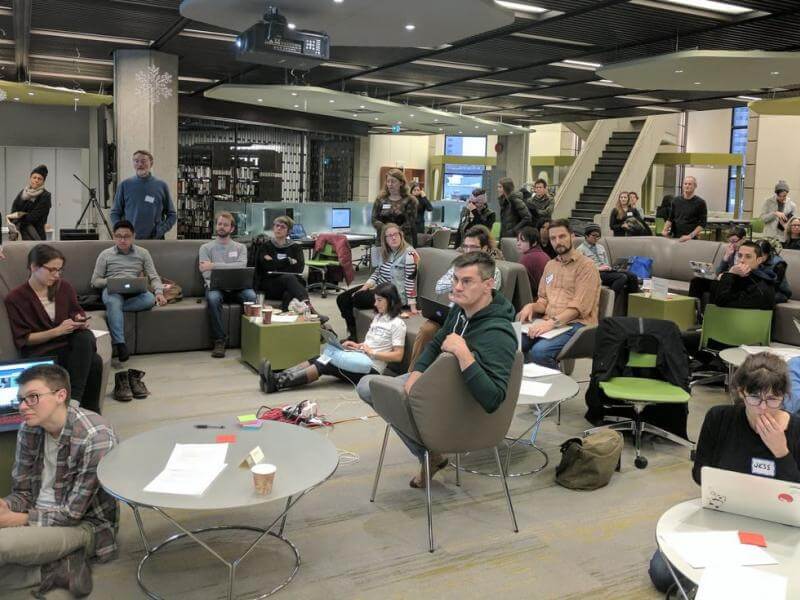Environmental Data and Governance Initiative: Engaged STS Responding to the U.S.Administration
Michelle Murphy, University Of Toronto;Sara Wylie, Northeastern University; Jerome Whitington; Joan Donovan, Data & Society Research Institute; Rebecca Lave, Indiana University Deparment Of Geography; Nick Shapiro
Boston 2017: Design and Planning

The Environmental Data and Governance Initiative (EDGI) is a grassroots network of nearly 90 composed of STS researchers, social and information scientists, natural and physical scientists, lawyers, and coders, as well as non-profit partners that formed in response to the Trump administration's hostile stances to existing federal environmental and energy policy, evidence and research, as well as to the scientific research infrastructure built to investigate, inform, and enforce environmental and climate regulations. Dismantling this infrastructure –which ranges from databases to satellites to models for climate, air, and water — would imperil the public’s ability to know, the US’s government’s capacity for evidence-based governance, corporate accountability, and environmental protection. This Making and Doing Presentation shares EDGI’s projects and its efforts to create collective, open, engaged practices that bring social scientist and technology communities together to work fordata justice and environmental justice. EDGI began on Nov. 11th, 2016, just days after the election, as an email sent to 14 STS and environmental social scientists, and quickly grew into a larger network with three working groups: 1) The Archiving and technology working group, which organizes public events to collect and archive publicly available websites, documents, and datasets vulnerable to loss, as well as mobilizes and collaborates with social justice coding communities to build tools; 2) the Monitoring working group, which uses version tracking software, cloud computing, and EDGI-built tools to monitor changes to website language, information, and links of some 150 .gov domains, comprising tens of millions of web pages, and sharing findings with journalists, policymakers, and non-profits; and 3) the Capacity, Policy, and Finance group which conducts oral history interviews with federal agency staff members, tracks budget and regulatory changes, and uses FOIA requests to conduct research and collect non-public data. EDGI has collaborated with local communities across the US and Canada to create a grassroots movement of data archiving events with commitments to open access, open source, and collaboration involving thousands of local volunteers. By the time of the 4S meeting, we expect EDGI to have evolved further. This presentation will share EDGI’s evolving work, challenges, and practices, and invite the 4S community to become involved in and inform EDGI’s efforts. Beginning with a series of lightning talks outlining EDGI’s work to date, we will break out into small groups for targeted discussions on data activistism, the promises of public science, and tactical responses to federal science and environmental stances. From there, we will hold a series of demos showcasing how to use the tools and techniques developed by EDGI to meet the challenges identified in the small group discussions. We will conclude with a moderated discussion on how to organize a networked community in your area. This presentation will be conducted by a group of EDGI members.
Published: 01/30/2023
